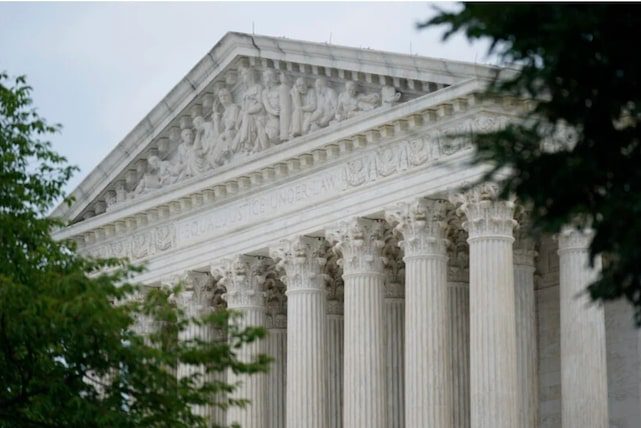(RNS) — As the Supreme Court hears the case of Brackeen v. Haaland on Wednesday (Nov. 9), what is at stake for most interested parties is the decades-old Indian Child Welfare Act, considered by many to be the “gold standard” of child welfare policy. Passed by Congress in 1978, the act was meant to stop Native American families from being separated by state child welfare agencies and private adoption services and instead seek placement for children within a federally recognized tribe.
But some also see Brackeen v. Haaland as case about religious liberty, and not only because at its heart is, as The New York Times put it earlier this week, “the Solomonic fight over the fate of a child.”
“This absolutely is about culture/religion,” Robert Miller, a professor of law at the Sandra Day O’Connor College of Law at Arizona State University, told Religion News Service.
“It’s about raising your citizens for the future to preserve your language, your cultural practices. You and I could easily put the category of religion on that,” said Miller, an enrolled citizen of the Eastern Shawnee Tribe and tribal judge.
RELATED: Before a month celebrating adoption, a day to recognize adoptees’ trauma
The plaintiffs in the Supreme Court case, Jennifer and Chad Brackeen, are a white couple living in Texas who want to adopt a now 4-year-old girl whose birth mother is Navajo. The couple had already adopted the girl’s brother, who shares the same birth mother, and when the girl was born in 2018 and fostered by another family, the couple filed for custody of her, too.
But ICWA establishes that children in foster care who are eligible for tribal membership should be placed with extended family, another member of their tribe or another Native American family whenever possible. And a relative — a great-aunt who lives in the Navajo Nation in Arizona and visits regularly with the children’s older siblings — also wants to adopt the girl.
In 2017, the Brackeens became the lead plaintiffs in a federal lawsuit brought by the state attorneys general of Texas, Louisiana and Indiana and other families challenging the law.
In 2019, a Texas judge ruled that the two families would share custody, with the girl living primarily with the Brackeens and spending time each summer with her great-aunt in the Navajo Nation.
The Brackeens’ case argues the Indian Child Welfare Act is unconstitutional, explained Ana Eveleigh, a Barnard College student who worked with Columbia Law School’s Law, Rights, and Religion Project this summer to analyze the religious dynamics in Brackeen v. Haaland. The argument lies in part in the idea that the law constitutes racial discrimination by determining the placement of children based on race, Eveleigh said.

